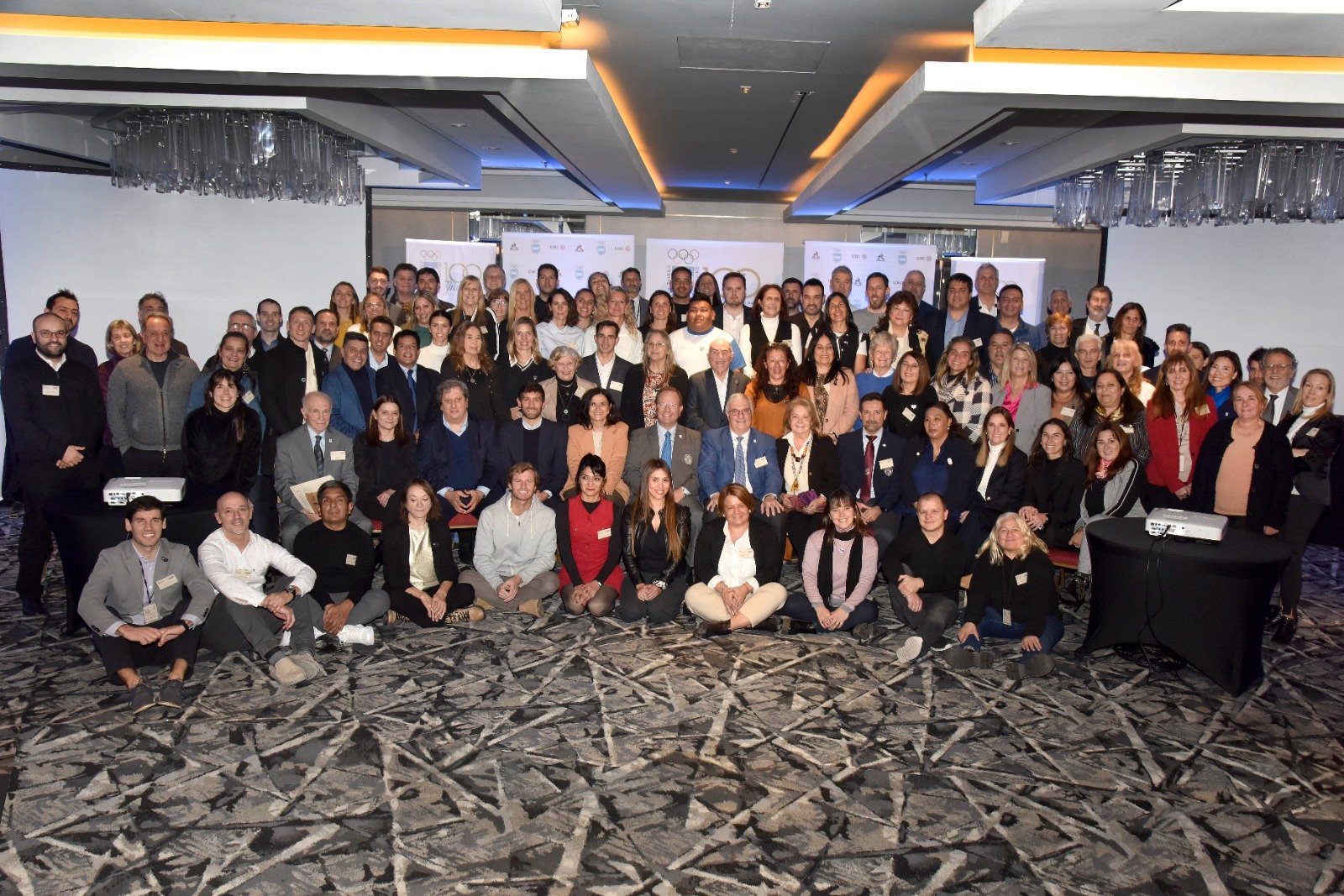On June 28th and 29th, Buenos Aires became the epicenter of debate and action on sustainability in sports with the II Argentine Congress on Sustainability in Sports, organized by the Argentine Olympic Committee (COA). This event not only brought together prominent national and international authorities but also gathered experts and sports enthusiasts committed to environmental preservation and sustainable development.
The congress opened on Friday, June 28th, with the notable presence of Mario Moccia, President of the COA, alongside Camilo Pérez López Moreira, member of the International Olympic Committee (IOC) and President of ODESUR and the Paraguayan NOC, who shared inspiring messages about the importance of integrating sustainable practices globally.
One of the central themes addressed was governance for sustainability in sport, presented by Mabel Roca, COA member and President of the Commission on Sustainability in Sport. Roca highlighted the need for solid structures to enable the effective implementation of sustainable policies in sports federations.
The impact of climate change was not overlooked, with the intervention of Inés Camilloni, Vice-Chair of Group I of the Intergovernmental Panel on Climate Change (IPCC), who outlined the challenges and urgent strategies to mitigate this global phenomenon in the sports context.
Regarding resource management, experts such as Luis Liberman, anthropologist and president of the University Institute of Water and Sanitation, and Daiana Borelli, graduate in Food Science and Technology from the National Institute of Industrial Technology (INTI), shared their perspectives on efficient water and energy management, respectively. Nadia Mazzeo, a specialist in circular economy and waste management, closed this block with an in-depth analysis on waste management at sporting events.
The regulatory framework was also explored, with a panel moderated by Estanislao Osores Soler, Vice President of the Commission for Sustainability in Sport and member of the Judiciary of the Province of Buenos Aires. This panel included the participation of prominent jurists such as Leonardo Villafañe and Lucía Iturrizza, who discussed environmental law and current regulations in the sports context and beyond.
The international perspective was provided by Claudio Tomasi, Resident Representative of the United Nations Development Programme (UNDP) in Argentina, and Paola Bohórquez, economist specialized in inclusive development, who emphasized the importance of global cooperation and inter-institutional alliances in the promotion of sustainable practices.
A highlight of the congress was the presentation of the COA Environmental Seal, an initiative led by Mabel Roca and Federico Fritz, agronomist engineer, which seeks to recognize and reward sports organizations committed to environmental sustainability in Argentina. In addition, representatives of companies such as ICBC Argentina, through Macarena Santos Muñoz, shared their experiences and strategies for integrating sustainability into their operations and institutional relations.
The second day of the congress focused on practical workshops, such as the Sustainable Management Model Workshop led by Federico Fritz, where concrete guidelines and lines of action to implement sustainable practices in local sports organizations were discussed.
The event culminated with a panel in which outstanding athletes such as Laura Abalo, Leandro Usuna, Mariela Delgado, Nora Vega and Valeria Fantasía shared their experiences and visions on the integration of sustainability in their sports disciplines.
The conclusions of the workshop, presented by Hernán Gliniecki and Mabel Roca, reflected the renewed commitment of the participants to implement the proposals and recommendations discussed during the congress, with the aim of moving towards a future where sport and sustainability walk hand in hand.
In summary, the II Argentine Congress on Sustainability in Sport was not only a space for learning and reflection, but also a call to action for all stakeholders involved in sport and environmental management in Argentina. This event laid the groundwork for future collaborations and the development of more robust policies to ensure a sustainable legacy for generations to come.





